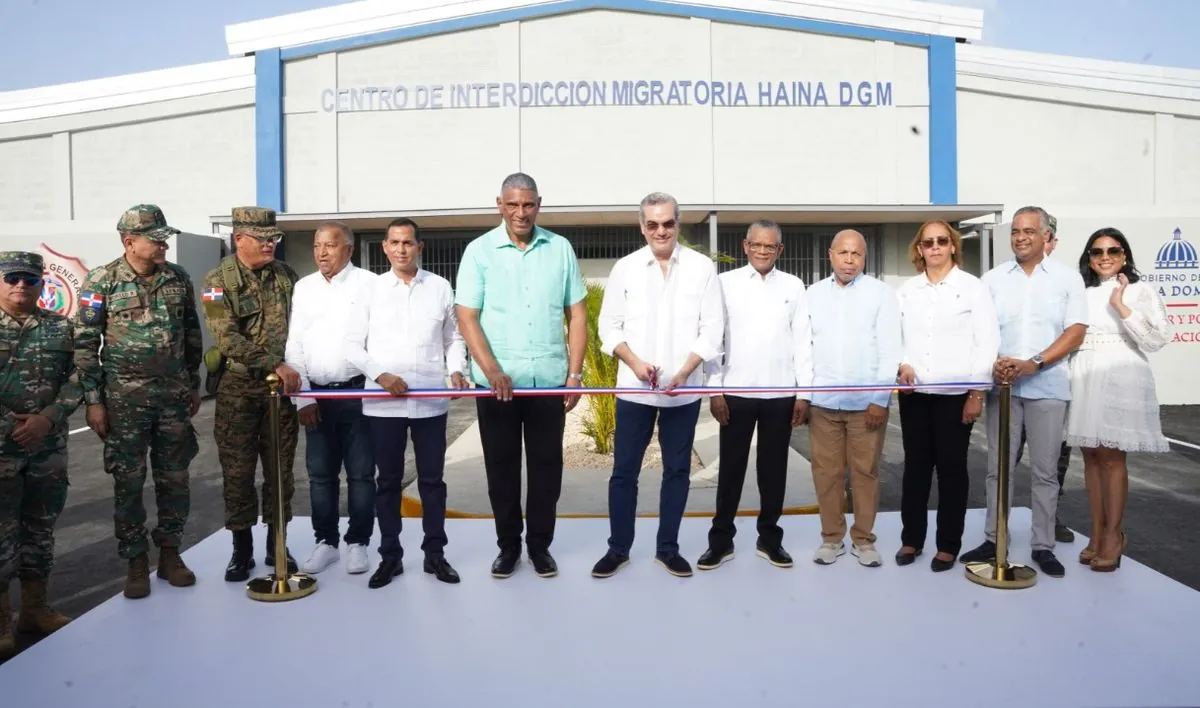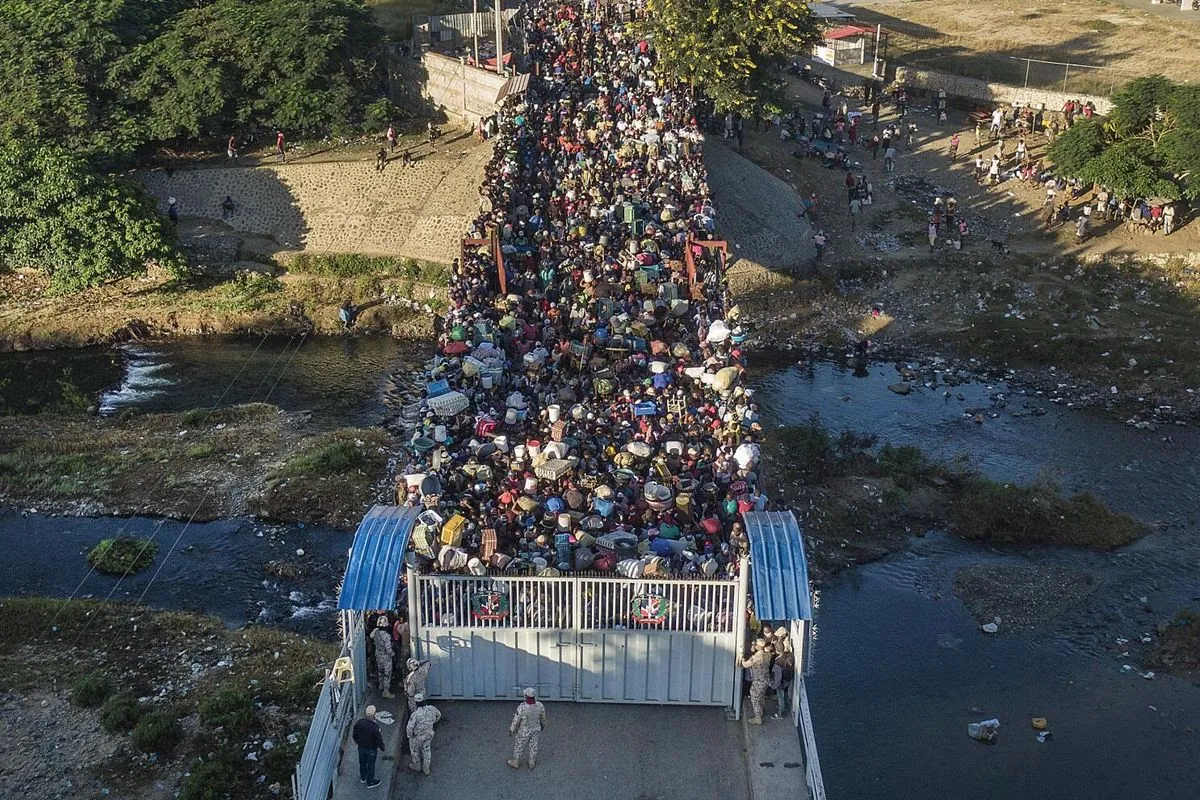Dominican Republic Unveils Massive Migrant Deportation Plan
The Dominican Republic announces an immediate plan to deport up to 10,000 migrants weekly, primarily targeting Haitians. This decision comes amid slow progress in UN-backed security efforts in Haiti.

The Dominican Republic's government has revealed a significant increase in its deportation efforts, announcing a plan to remove up to 10,000 migrants weekly. This decision, made public on October 2, 2024, primarily affects Haitian nationals, who have historically comprised the majority of deportees from the country.
This new initiative represents a substantial escalation from previous deportation rates. In 2023, over 200,000 Haitian migrants were forcibly returned, according to United Nations data. The Dominican Republic, which shares the island of Hispaniola with Haiti, was responsible for 96% of these deportations.
Homero Figueroa, the presidential spokesperson, justified the decision by citing the "limited" results of the UN-backed security mission in Haiti. He stated:
"Faced with this reality, we're forced to act decisively and responsibly to guarantee the security and stability of our country."
The announcement comes at a time of severe crisis in Haiti. Nearly half of Haiti's 11.4 million population is experiencing severe hunger, and internal displacement has almost doubled in the past six months, surpassing 700,000 people. This surge in displacement is largely due to the expansion of gang activity in areas surrounding the capital, Port-au-Prince.

The United Nations has repeatedly urged countries in the region, including the Dominican Republic and the United States, to halt deportations to Haiti due to the dire circumstances. However, the Dominican Republic's government appears to prioritize its national security concerns over these humanitarian appeals.
This situation highlights the complex relationship between the two nations sharing Hispaniola. While the Dominican Republic, with a population of about 10.8 million, has a more stable political system and a service-based economy focused on tourism, Haiti continues to grapple with political instability, natural disasters, and economic challenges.
The history between these two countries is marked by tension and complexity. Haiti gained independence from France in 1804, becoming the first independent black republic. Later, the Dominican Republic gained its independence from Haiti in 1844. Since then, their paths have diverged significantly, with the Dominican Republic achieving higher GDP per capita and more preserved forests, while Haiti has faced severe deforestation and struggled with issues like cholera outbreaks.
The border between Haiti and the Dominican Republic stretches about 380 km, presenting challenges for border control. In 2013, a controversial court ruling in the Dominican Republic stripped citizenship from many Haitian descendants, further complicating the migration issue.
As this new deportation plan unfolds, it will likely have significant implications for both countries and the wider Caribbean region. The international community continues to grapple with how to address Haiti's ongoing crises while respecting the sovereignty and security concerns of neighboring nations.


































